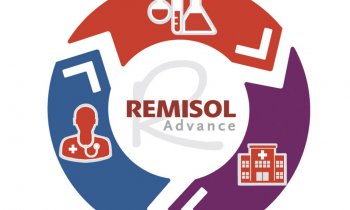
© Vitaly Gariev – unsplash.com
News • Eco-friendliness and confidence
Patients open to more sustainable treatments, study finds
The doctor suggests opting for a treatment that is better for the environment. How do patients react to this? Doctors and psychologists together discovered that this has little impact on patient confidence in the doctor.
The environmental impact of medical treatments is becoming an important issue for an increasing number of patients. This is the finding from a study by the Dutch Patient Federation. But it depends on the doctor whether the question of sustainability is discussed when choosing particular treatments. LUMC PhD candidate Egid van Bree explains: ‘If doctors expect a negative response, they won’t be keen to raise the subject. We need to make these expectations clear and evaluate them. Doctoral candidate Eva Visser and I both focused on the question of whether patients really would have less confidence in a doctor who raised the sustainability factor.’
Leiden behavioural psychologists and doctors, working together on the interdisciplinary Health Campus The Hague, set up a joint study to gain a clearer view on this. They were awarded a Kiem grant to carry out the study: this is a financial subsidy provided by Leiden University to encourage projects that promote collaboration between different scientific disciplines.
A pre-print of the study is available on medRxiv. [What does that mean?]
Currently among doctors there is a lot of discussion about whether or not they should mention sustainability. Based on this study, in many situations the fear of a negative reaction from patients is unfounded
Egid van Bree
Over 1500 people from all sections of society took part in the study. Each participant was given five scenarios representing a fictitious consultation. The consultation was about a so-called high-severity condition (such as a treatment for lung cancer) or a low-severity condition (such as a sprained ankle). In each scenario the participant visited the doctor acting as a patient with a particular complaint. In each scenario the doctor proposed a slightly different treatment for the patient, with in scenario four most emphasis being placed on sustainability. ‘For example, in the case of asthma, the doctor said: “There are two possible treatments: a puffer or a dry powder inhaler. I recommend the powder inhaler because it will stop you becoming so breathless.” In scenario four, the doctor then added: “And it’s also better for the environment.”’ After the scenarios, the participants responded to a number of statements, where they could indicate per scenario on a scale from 1 to 7 to what extent they had confidence in the doctor and the treatment.’
The study found that explicitly naming the sustainability aspect had barely any influence on a large proportion of the participants in terms of their level of confidence in the doctor. That’s an interesting outcome, Van Bree comments. ‘Currently among doctors there is a lot of discussion about whether or not they should mention sustainability. Based on this study, in many situations the fear of a negative reaction from patients is unfounded. Incidentally, mentioning sustainability did not increase our participants' trust in the doctor either.
With a small number of patients, explicitly mentioning the sustainability aspect in the case of serious health conditions did result in negative reactions. ‘In the open question that they were able to answer, one participant, for example, said: “For me health always wins over sustainability benefits.”’
The interdisciplinary collaboration with social scientists gave a lot of new insights, Van Bree felt. ‘In all honesty, as a doctor I was mainly interested in the quality of the consultation. But in the discussion with psychologists questions also came up about the reactions of the participants, such as what we can deduce from these reactions. I learned a lot about their research methods - and we explained a lot of terms and definitions to one another.’
Source: Leiden University
21.10.2025








